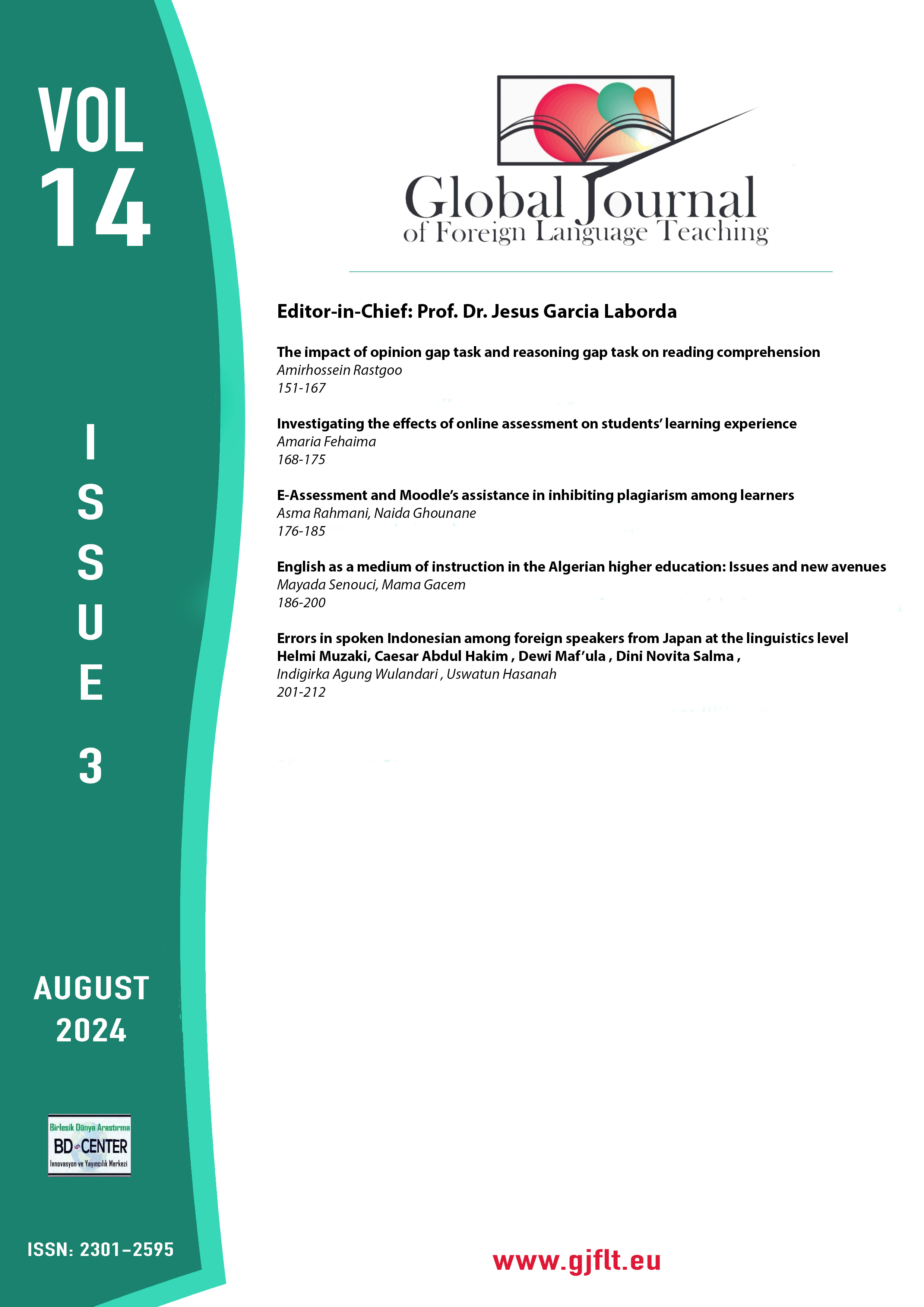Errors in spoken Indonesian among foreign speakers from Japan at the linguistics level
Main Article Content
Abstract
This study aims to analyze Indonesian errors in Indonesian speakers from Japan. This study used the descriptive qualitative method. The data analysis technique in this study was in 4 stages. The stages are included collection of a sample, identification of errors, description of errors, and explanation of errors. The data sources in this study were Indonesian speakers from Japan's videos. This research showed that Indonesian speakers from Japan made Indonesian errors at the linguistic level; the details are as follows. There were 43 phonological errors: 17 adding phonemes errors, five reduction phonemes, and 21 replacing phonemes. There were ten morphological errors. These errors were five errors of omitting prefixes, two errors of omitting suffixes, one error in the aspect of omitting confixes, and errors in using inappropriate prefixes. There were nine syntactic errors: 4 errors in unsubjected sentences, two errors using prepositions, and three incorrect sentence structure formations. These results are discussed among other results from this study.
Keywords: Errors; Foreign Speaker; Linguistics.
Downloads
Article Details

This work is licensed under a Creative Commons Attribution-NonCommercial-NoDerivatives 4.0 International License.
Authors who publish with this journal agree to the following terms:- Authors retain copyright and grant the journal right of first publication with the work simultaneously licensed under a Creative Commons Attribution License that allows others to share the work with an acknowledgement of the work's authorship and initial publication in this journal.
- Authors are able to enter into separate, additional contractual arrangements for the non-exclusive distribution of the journal's published version of the work (e.g., post it to an institutional repository or publish it in a book), with an acknowledgement of its initial publication in this journal.
- Authors are permitted and encouraged to post their work online (e.g., in institutional repositories or on their website) prior to and during the submission process, as it can lead to productive exchanges, as well as earlier and greater citation of published work (SeeThe Effect of Open Access).
